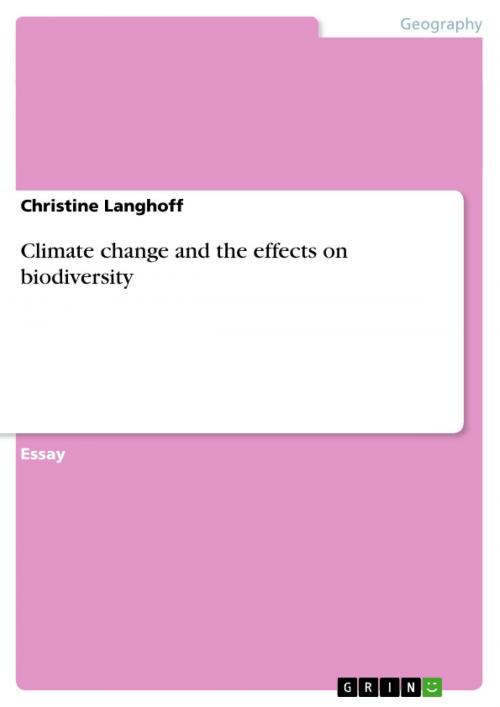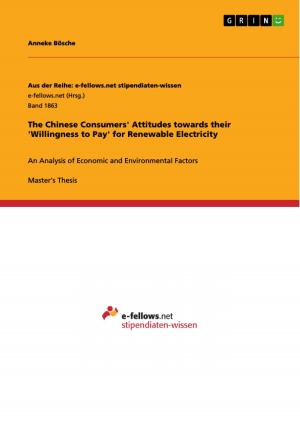Climate change and the effects on biodiversity
Nonfiction, Science & Nature, Science, Other Sciences, Meteorology| Author: | Christine Langhoff | ISBN: | 9783638128704 |
| Publisher: | GRIN Publishing | Publication: | June 3, 2002 |
| Imprint: | GRIN Publishing | Language: | English |
| Author: | Christine Langhoff |
| ISBN: | 9783638128704 |
| Publisher: | GRIN Publishing |
| Publication: | June 3, 2002 |
| Imprint: | GRIN Publishing |
| Language: | English |
Essay from the year 2002 in the subject Geography / Earth Science - Meteorology, Aeronomy, Climatology, grade: 1.1 (A), Oxford University (New College), 7 entries in the bibliography, language: English, abstract: Climates have changed and still are constantly changing at all scales, from local to global, and over varying time-spans. There have been, however, surges of change over time which meteorologists and earth scientists are continually trying to clarify and explain. Global climatic change due to increasing atmospheric concentrations of greenhouse gases has dominated the environmental agenda since the mid 1980s and has engendered considerable international political debate. There is no doubt that over the last 100 years or so, human action has significantly increased the atmospheric concentrations of several gases that are closely related to global temperature. It seems likely that these increased concentrations, which are said to continue to rise in the near future, are already affecting global climate, but our poor knowledge and understanding of the workings of the global heat balance make the current and future situation uncertain. Since the atmosphere is intimately linked to the workings of the biosphere, hydrosphere and lithosphere, the projected changes in climate will have significant effects on all aspects of the natural world in which we live. Many ecological systems will be dramatically changed by global warming and this might lead to changes or even loss of biodiversity.
Essay from the year 2002 in the subject Geography / Earth Science - Meteorology, Aeronomy, Climatology, grade: 1.1 (A), Oxford University (New College), 7 entries in the bibliography, language: English, abstract: Climates have changed and still are constantly changing at all scales, from local to global, and over varying time-spans. There have been, however, surges of change over time which meteorologists and earth scientists are continually trying to clarify and explain. Global climatic change due to increasing atmospheric concentrations of greenhouse gases has dominated the environmental agenda since the mid 1980s and has engendered considerable international political debate. There is no doubt that over the last 100 years or so, human action has significantly increased the atmospheric concentrations of several gases that are closely related to global temperature. It seems likely that these increased concentrations, which are said to continue to rise in the near future, are already affecting global climate, but our poor knowledge and understanding of the workings of the global heat balance make the current and future situation uncertain. Since the atmosphere is intimately linked to the workings of the biosphere, hydrosphere and lithosphere, the projected changes in climate will have significant effects on all aspects of the natural world in which we live. Many ecological systems will be dramatically changed by global warming and this might lead to changes or even loss of biodiversity.















